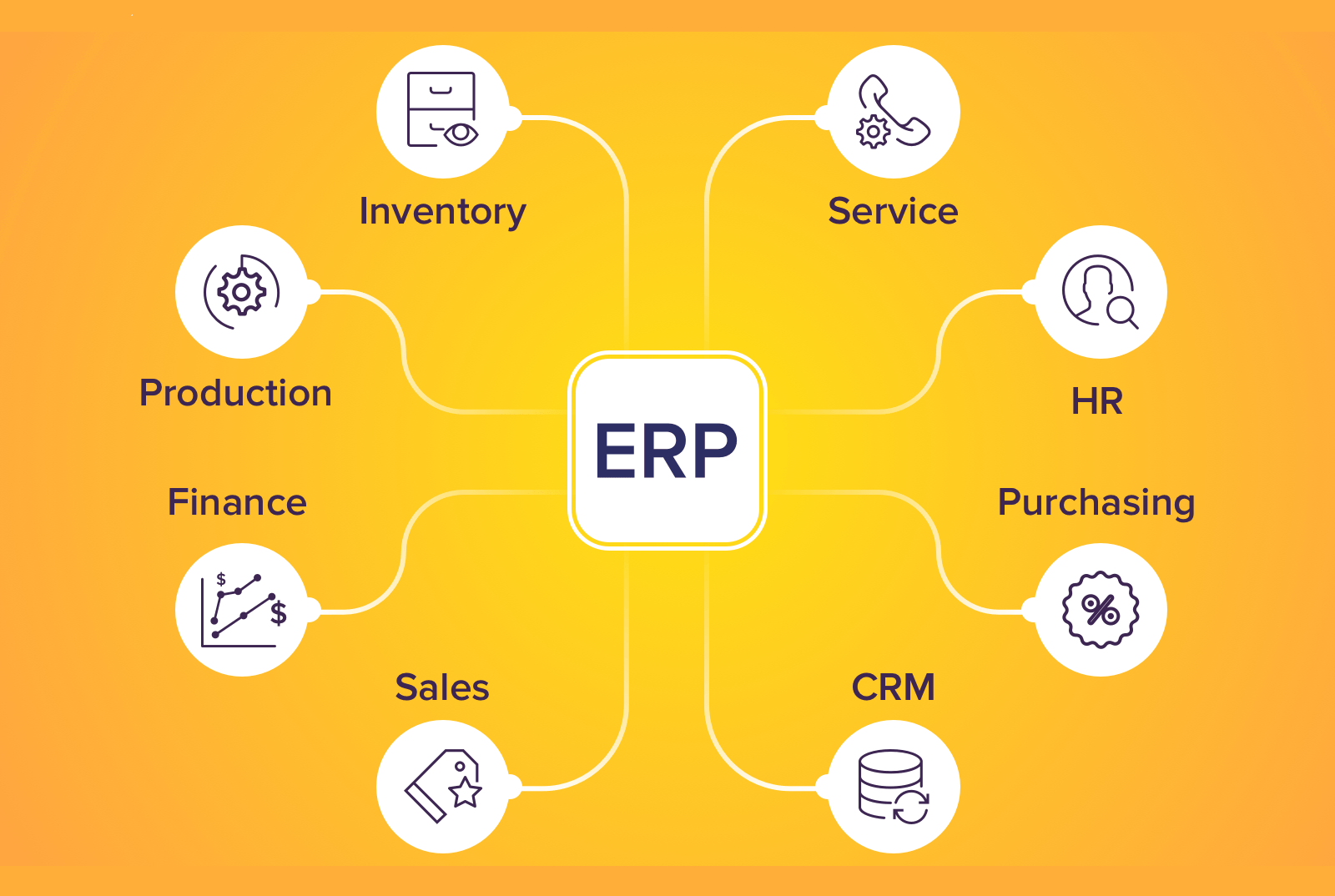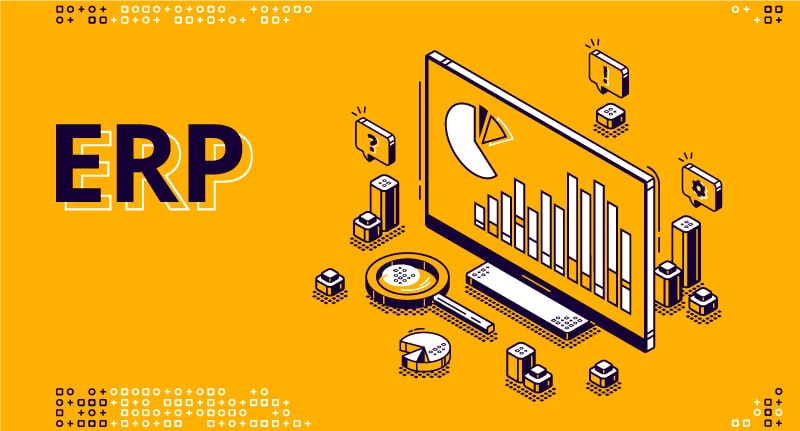ERP or Enterprise Resource Planning is software designed to control and plan all the resources of a company or enterprise. It is a multifunctional platform with a complex structure that brings together all the necessary data: for personnel management, financial, accounting, warehouse, product management (purchase, sales), logistics, etc. This program not only stores and sorts this data, but also allows its planning and optimization.
Most likely, if you have an enterprise or a larger company, you already have automation mechanisms, in this case, the question naturally arises is why do you still need to implement an ERP system? The answer is that such a system is homogeneous and no matter how complex it would be, if properly implemented, it will be much easier to manage than several, disconnected automation systems. Through one single program, you can combine and automate all business processes.
ERP is a system that solves a good number of tasks, which greatly simplifies the conduct of business in general. So, the advantages of a system that automates the work of a company are:

it allows you to adjust all work to one standard, which eliminates confusion and loss of important data;
it optimizes the workflow to the maximum, since all departments are in constant communication;
it automates production, which allows you to carry out all the necessary processes and works on time;
it ensures transparency of business processes;
it allows you to get quick access to certain information;
it allows you to track and evaluate the quality of work of both entire departments and individual employees.
Each program may differ in a number of features, however, there is a common base of functions for all ERP's:
1 Function — Production department planning and control
2 Function — Finance department planning
3 Function — Accounting department planning and tax report
4 Function — Project management
5 Function — Warehouse department control
6 Function — Labor management
Implementation on the technical plan basis
Naturally, any project begins with a technical assignment, but in this case we are talking about a much more voluminous technical task. It includes even the smallest tasks. Next, is created a schedule. This method has a right to exist and may even be successful, but it has one big drawback — it can take several months to create. To create a giant technical assignment, which will include all the modules, all the documentation and the nuances of future work, you need to be almost a genius. It is important to understand that even the smallest changes in one module lead to a mandatory change in all the others.
Gradual implementation
In this case is drawn up a more general TK, mainly consisting of working out the processes of the main departments of the company or enterprise. This method is simpler and the error rate is lower. In this case, the result begins to manifest itself already in the implementation process. Thus, the technical plan is constantly updated and the company's department are connected gradually to the implementation.
The "Agile" approach
The basis of this approach is flexibility, movement and quick decision-making. Quite an interesting method, however, it requires a special skill of the developers, as well as the professional level of the leader. In this case, only an approximate generalized plan is drawn up, which is carried out "in pieces". One of the most significant drawbacks is that it is not possible to involve company employees in the implementation process. This method can work, but only in the case of small companies with a simple structure.
Gradually and parallel
This method is similar to the second one, with the main difference, that the modules are not worked out one by one, but work plans are drawn up, which can be carried out with several modules at once. This is perhaps the most convenient and effective method in terms of time.

Regardless of how complex and large-scale the program will be, the implementation of an ERP system is deployed in the following stages:
Stage I: Drawing up a technical task is a necessary stage for the development of any program. To make it as expedient as possible, at this stage it is necessary to analyze the company itself, the specifics of each department and the production process.
Stage II: Development itself.
Stage III: Installation – at this stage, all the necessary data is transferred and also, the program is tested. Errors are eliminated if necessary.
Stage IV: Introductory training course for staff.
Stage V: Final. At this stage, also, may be offered a technical support service. We advise you to discuss this point in advance.
Leaders in the IT market |
| 14+ years of experience and innovative solutions to help your business stand out and grow. |
Inspiring portfolio |
| 150+ successful projects: from sleek landing pages to complex corporate systems. |
Team of experts |
| 51+ professionals who bring your ideas to life with maximum efficiency. |

| NOTORIUM TRADEMARK AWARDS |
| Notorium Trophy 2017, Notorium Gold Medal 2018, Notorium Gold Medal 2019 |

| TRADE MARK OF THE YEAR |
| Gold Medal 2016, Gold Medal 2017, Gold Medal 2018, Gold Medal 2019 |

| THE BEST EMPLOYER OF THE YEAR |
| According to the annual Survey conducted by AXA Management Consulting - 2017, 2018, 2019 |